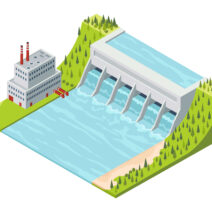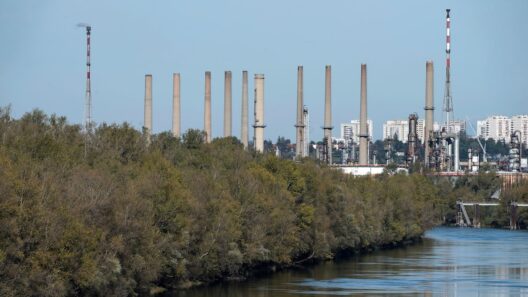In contemporary discourse, the impacts of global warming have transcended mere academic concern, evolving into a pressing reality that poses generational stakes for our children and succeeding cohorts. The ramifications of climate change are manifesting across multifarious dimensions, extending from ecological degradation to socio-economic upheavals. This discourse aims to elucidate the myriad ways in which global warming will indelibly shape the world that our children will inherit.
First and foremost, the ecological tapestry of Earth is undergoing a profound transformation. Climate change is catalyzing shifts in weather patterns, leading to the intensification of extreme weather events, such as hurricanes, droughts, and wildfires. These phenomena not only destroy habitats but also threaten biodiversity. As species struggle to adapt to their rapidly changing environments, we witness alarming rates of extinction. For instance, tropical coral reefs—often termed the “rainforests of the sea”—are under siege from ocean acidification, a direct consequence of increased carbon dioxide levels. Our children are poised to inhabit a planet where the richness of biodiversity is significantly diminished, thus compromising ecological resilience.
Moreover, the implications extend beyond mere environmental degradation. The socio-economic repercussions of global warming are equally severe, with vulnerable populations bearing the brunt of climate-induced adversities. The nexus between climate change and socio-economic disparity is irrefutable. Communities that are least equipped to cope with the effects of global warming—often low-income or marginalized groups—are facing heightened risks of displacement, food insecurity, and health crises. As the frequency of natural disasters escalates, economic stability is undermined. Our children may inherit a world rife with inequality, where the socio-economic landscape is drastically altered, and the chasm between the affluent and the disenfranchised widens further.
Water scarcity is another critical facet of global warming that warrants attention. As temperatures rise, the hydrological cycle undergoes fundamental alterations. Increased evaporation rates, coupled with shifting precipitation patterns, jeopardize freshwater resources. In many regions, millions may find themselves grappling with acute water shortages. Our children could inhabit a world where access to clean and sufficient water becomes a contentious commodity, leading to potential conflicts over dwindling resources. Water scarcity not only impacts daily life but also poses challenges to agricultural production and food security.
Additionally, the psychological ramifications of climate change cannot be overlooked. Environmental degradation and disasters foster a sense of uncertainty and anxiety among younger generations. The phenomenon of “eco-anxiety,” characterized by pervasive worry regarding the state of the planet, has emerged as a notable mental health concern among youth. This psychological burden can inhibit their ability to aspire and thrive, casting long shadows over their potential futures. Children may grow up navigating a world steeped in apprehension, where the continuity of their existence is perpetually questioned.
Furthermore, the changing global climate prompts both migration and displacement on a scale previously unseen. The harrowing concept of “climate refugees” is now a reality as rising sea levels engulf coastal communities and extreme weather displaces populations. As entire communities relocate, there are inevitable societal ramifications. The influx of displaced individuals into new regions can engender cultural friction and stretch local resources thin. Our children could find themselves in a future where regional tensions escalate due to forced migration, compounding existing challenges of social cohesion and integration.
Another salient aspect to consider is the impact of climate change on public health. Rising temperatures and altered weather patterns facilitate the proliferation of vector-borne diseases such as malaria and dengue fever, which once lied largely at bay in temperate regions. Additionally, air quality deteriorates due to increased emissions and wildfires, exacerbating respiratory ailments. Our children may confront a healthcare landscape fraught with challenges stemming from climate change, where communicable diseases emerge anew, and chronic health conditions become increasingly prevalent.
The fiscal implications of climate change are equally consequential. As investments pivot toward renewable energy and infrastructural resilience, significant resources will be required to mitigate climate impacts and adapt to new realities. The financial burden of adaptation will likely fall on future generations, necessitating robust policy frameworks to ensure sustainable economic environments. Our children may inherit economic systems strained by exorbitant costs associated with climate-related disasters, pushing them toward financial precarity.
However, amid these dire forecasts lies the potential for innovation and transformative action. Climate change is galvanizing a global movement toward sustainable solutions and renewable energy technologies. As concern crescendos, the dialogue around sustainability has intensified, paving the way for advancements in energy efficiency, conservation practices, and green technologies. Thus, the capacity for our children to carve out a viable and sustainable future hinges on collective action today. Policymakers, educators, and citizens alike bear the responsibility to cultivate an ethos of environmental stewardship, equipping future generations with the tools requisite to combat the vicissitudes of climate change.
In conclusion, the generational stakes tied to global warming are profound and multifaceted. As we navigate the complexities and uncertainties of climate change, it becomes imperative to acknowledge the implications that will resonate well into the future. From ecological integrity and social equity to mental well-being and economic stability, our children’s world is teetering on a precipice influenced by our actions—or inactions—today. The dialogue surrounding these critical issues must not only persist but evolve, fostering transformative solutions that prioritize the sanctity of both people and the planet. The stakes are high, and time is of the essence; our collective future depends on the decisions made in this pivotal era.







